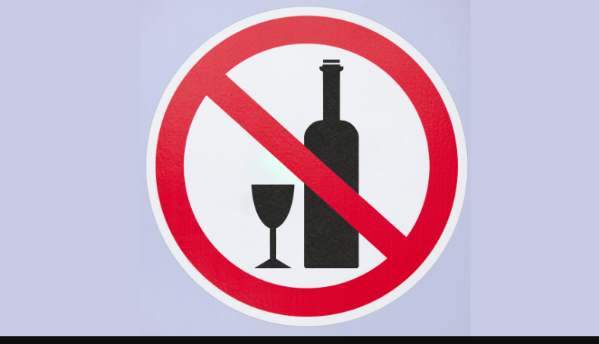When you make an attempt to break free from alcohol use disorder, you’ll experience intense physical and mental withdrawal symptoms. And these symptoms cause dire consequences to health if left unaddressed.
After avoiding alcohol for the first 72 hours, it’s the most difficult time to sustain it during alcohol use disorder treatment.
Usually, alcoholics going through alcohol use disorder treatment relapse within the first 72 hours. The question is: “Why are these initial 72 hours so important?”
These initial 72 hours are to recognize how alcohol use disorder affects the brain and body. Though it’s legal, alcohol is still a drug and causes addiction.
Alcohol is a central nervous system depressant. It means that alcohol slows down our body’s automatic functions.
This is why when someone consumes an alcoholic drink, he or she can experience effects like slowed breathing, relaxation, fatigue, and reduced stress.
These effects take place because alcohol changes the way neurotransmitters function within our brains. Alcohol particularly increases the effects of a neurotransmitter called GABA.
GABA calms our brain and central nervous system. When people indulge in drinking on a daily basis, they grow alcohol use disorder. As a result, their brain starts relying on GABA response.
Basically, the brain makes adjustments and feels more active to counter the depressant effects of alcohol. As a matter of fact, alcohol affects our multiple body organs, i.e., the stomach, liver, and kidneys, among others.
Over time, alcohol use disorder turns out to be addictive and leads to a number of cancers and diseases.
When people quit alcohol cold turkey, they’re highly likely to experience many physical and mental withdrawal effects. Thus, it’s not recommended at all.
Most alcoholics may experience an increase in physical withdrawal symptoms in 48 hours. In the next 24 hours, symptoms may aggravate and make it the most difficult time during alcohol use disorder treatment.
After three days, the patient may still feel uncomfortable; however, with persistence, they can start to show gradual improvement.
If left unattended, alcohol use disorder can also be life-threatening. For instance, high central nervous system activity can lead to lethal seizures.
Well, there are effective options for alcohol use disorder treatment. These options make the treatment procedure safer and more comfortable.
In this regard, an alcohol detox facility is a good choice. These detox facilities help alcoholics get rid of alcohol withdrawal.
If you think it’s not a suitable option for you, an emergency room can help you detox in a safe way.
Alcohol Withdrawal Symptoms
Alcohol withdrawal occurs when you quit alcohol. The symptoms are the result of an overactive central nervous system. Why? Because our brain adjusts to the effects of alcohol.
Withdrawal symptoms usually begin in 24 hours. Over the first 72 hours, they improve, but the physical symptoms can last up to 14 days. Common symptoms include headache, shakes, sweating, vomiting, nausea, and anxiety, among others.
Types of Alcoholics
Light and moderate alcoholics might experience few symptoms. Heavy drinkers experience more symptoms. Chronic alcoholics face the highest risk.
Tips To Stay Motivated During Your Alcohol Use Disorder Treatment
At times, it becomes too difficult to stay motivated to continue on the path to recovery. The following tips will help you carry on your journey for sure.
Celebrate
Addiction recovery involves many steps. For each successful step, you should celebrate. Your small wins could be:
- Going a day without giving in to a craving
- Attending a therapy session
- Reaching out to a support network
It reinforces positive behavior and keeps you motivated on the path to recovery.
Educate Yourself
Knowledge is always a powerful tool. Why? Because knowledge brings you the necessary information necessary to make informed decisions.
To gain knowledge, you can use resources such as the following:
- Books
- Reliable websites
- Educational workshops
- No Substitutes
Generally speaking, people replace one addiction with another, but it can be potentially harmful. Instead, you should focus on healing and developing healthy coping mechanisms.
Simply put, avoid similar addictive substances and behaviors like excessive eating and shopping.
Patience
Addiction recovery is a long process. Thus, you need to have patience and persistence. Remember that it’s a self-discovery path and will take time and dedication.
Positive Outlook
Hope is essential in your journey to recovery. It drives you forward during hard times.
Believe in your capability to overcome your addiction and imagine a future where you’re in full control of your life.
Surround yourself with positive influences and often remind yourself why you chose to seek recovery.
I hope you make a successful journey to your recovery.






